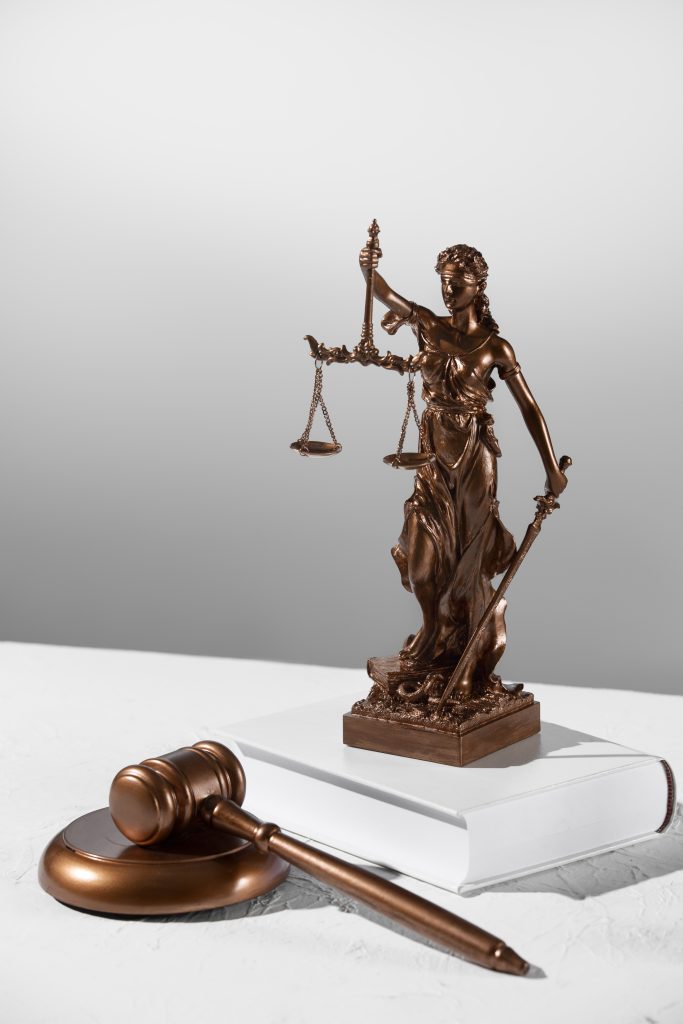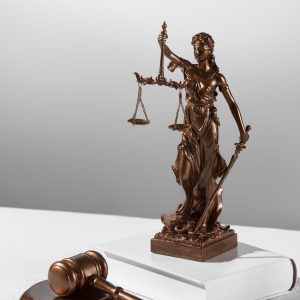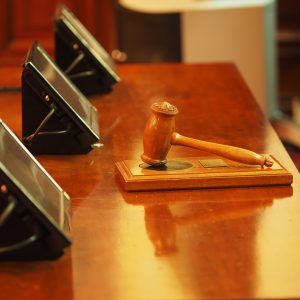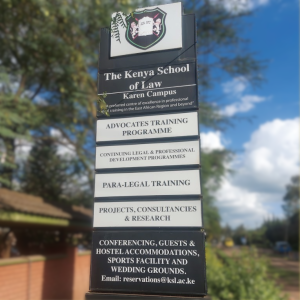BY
STANLEY GATHAGA MWANGI
AN ADVOCATE OF THE HIGH COURT OF KENYA
INTRODUCTION
Recusal of judges and magistrates is not a new phenomenon within the judicial processes in Kenya. Since the Judiciary was set up after independence, many magistrates and judges have had to recuse themselves from court cases for one reason or another either suo moto or on application by a party.
The Black’s Law Dictionary, 8th ed. (2004) [p.1303] defines recusal as follows;
Removal of oneself as judge or policy maker in a particular matter, [especially] because of a conflict of interest.
The Supreme Court of Kenya being the highest court in the land, is not immune from recusal of judges especially if you consider the fact that the Judges of the Supreme Court are highly experienced in the profession and have handled countless cases both in private practice and as judicial officers. As per the Constitution, 2010 the Supreme Court has a maximum of seven judges that being the Chief Justice, the Deputy Chief Justice and five other judges. The requisite quorum for the Court for any proceedings before it is a minimum of five judges.
In this article we shall consider how the Judges of the Supreme Court should weigh the parties’ right to be heard, avoiding conflict of interest and whether the Judge’s opinion or view of a party should play any part in the judge’s decision as to whether they should recuse themselves. Let’s begin.
Jurisprudence regarding recusal of Supreme Court Judges
As stated above, the Supreme Court is made up of seven Judges as per Article 163 (1) of the Constitution and the requisite quorum required for the Court to conduct its proceedings is a minimum of five judges as per Article 163(2).
Supreme Court judges can recuse themselves suo moto or on application of any party when it is apparent that they will be unable to make a rational and impartial decision in a matter before them due to having some type of relationship with any of the parties before them or having handled the matter before when it was in the lower courts.
The Judicial Service (Code of Conduct and Ethics) Regulations 2020, which applies to Judges of the Supreme Court, under Clause 21 provides for the instances in which a Judge may recuse themselves which are as follows;
-
- is a party to the proceedings;
- was, or is a material witness in the matter in controversy;
- has personal knowledge of disputed evidentiary facts concerning the proceedings;
- has actual bias or prejudice concerning a party;
- has a personal interest or is in a relationship with a person who has a personal interest in the outcome of the matter;
- had previously acted as a counsel for a party in the same matter;
- is precluded from hearing the matter on account of any other sufficient reason; or
- or a member of the judge’s family has economic or other interest in the outcome of the matter in question.
If a Supreme Court judge finds him/herself in any of the situations above, they are required to recuse themselves immediately as they cannot guarantee impartiality.
The Supreme Court itself has rendered decisions with regards to recusal of its judges once faced with such applications and have had to juggle the parties’ right to be heard and quorum requirements.
A good example of such a case is the case of Rai & 3 others v Rai & 4 others (Petition 4 of 2012) [2013] KESC 20 (KLR) (6 February 2013) (Ruling) (with dissent – MK Ibrahim, SCJ) where the issue of recusal of Supreme Court judges was discussed.
Hon. MK Ibrahim SCJ in his dissenting ruling, held as follows;
“Principle applicable in the Current Case
Article 163 (1) establishes the Supreme Court comprising of seven judges. Sub-article 2 states that the Supreme Court shall be properly constituted for the purposes of its proceedings if it is composed of five judges. The total number of the Supreme Court judges that this country can have at any given time under the Constitution is seven. The minimum that must sit and determine a matter is five. This means that the only allowance given by the Constitution of the judges who may be away for whatever reason, including illness or worse still, death, is two. If one of the remaining five is required to disqualify him/herself, it may be argued that out of necessity the judge would have to sit to ensure that there will be no failure of justice due to the bench being below the quorum set by the Constitution.
The decision in Laird vs Tatum would form persuasive precedent. Therefore, it would be of utmost importance that the judges of the Supreme Court sparingly and cautiously allow disqualification in order to ensure that the Court is not at any time incapacitated due to lack of quorum. Indeed, the Court should consider the high likelihood that several judges may be required to recuse themselves in the same case. Take for instance two judges recuse themselves at a time when there is a vacancy in one of the positions of a judge of the Court. The Court will become paralyzed and administration of justice will not be as expeditious as envisioned in the Constitution.”
As the learned judge of the Supreme Court has noted about, the Judges have to ensure that they weigh any application of recusal as against a party’s right to be heard. If at all the recusal is not merited, the Judge should sit and handle the matter not only to protect the party’s right to be heard but also to ensure that the Court’s operations are not ground to a halt. This would also go to the Judges opinion on any party before it. All judges should view all parties before them as equals and should determine their cases based on the probative value of the evidence placed before them. From the list provided under Clause 21 of the Code of Conduct, there is not part that speaks about the Judge’s opinion on a party. This therefore means that despite what a Judge may think about a party, they should listen to them and give a fair and just determination to their matter and not proceed to quickly recuse themselves.
Clause 21(3) of the Code of Conduct which provides for instances in which a Judge may not recuse him/herself states as follows;
A judge may not recuse himself or herself if—
- no other judge can deal with the case; or
- because of urgent circumstances, failure to act could lead to a serious miscarriage of justice;
- the merits of the application for recusal have been considered by a plural bench of judges, and recusal held to be unnecessary.
In a legal article written by the renowed firm of Wamae & Allen LLP, Advocates Caxstone Kigata and Joseph Muhuni succinctly explained it as follows;
“Another doctrine closely related to the doctrine of necessity is the doctrine of the duty to sit. This doctrine requires a judge not to recuse themselves unless there are compelling reasons not to sit. Though not greatly used in our jurisdiction, every judge has a duty to sit in a matter they should sit. The doctrine flows from the constitution and common law. Judges take an oath to serve impartially and protect the constitution. It is therefore assumed that they will rise above their personal opinion and uphold the rule of law. The doctrine was discussed by Justice Ibrahim in his concurring opinion in the Gladys Boss Shollei case. The Justices was of the opinion that the doctrine safeguards a party’s right to be heard and determined before a court of law.
In conclusion, we opine that justice must be done to all. Whenever a judge is asked to recuse themselves, they should do it to protect the face of the court. However, this mechanism should not be used to forum shop for a bench or as a delay tactic. Courts should, therefore, invoke the doctrines of necessity and duty to sit whenever they feel that justice should be done by them handling the matter. This calls for a balance between the doctrine of recusal and these two doctrines.”
In the case of Mtaani v Judicial Service Commission & another (Petition E160 of 2023) [2024] KEHC 3487 (KLR) (Constitutional and Human Rights) (12 April 2024) (Ruling) the High Court while dismissing an application for recusal of the judge held as follows;
Judges have a duty to sit and it is in the interest of justice that I prevent an unwarranted crisis in the administration of justice that may have the ripple effect of knocking out many more Judges from the matter at the whims of the Petitioner.
Having considered the Petitioner’s fears expressed in this Notice of Motion application vis-a- vis the Petition he has filed in its totality, I do not think any reasonable man, aware of the extent of the Petitioner’s grievance, and being conscious of the obligation that comes with the solemn oath of office of Judge to defend the Constitution and do justice without fear or favour will even in the remotest sense habour the apprehension put forth by the Petitioner of a likelihood of bias in the determination of the issues raised in the Petition.
I am not satisfied that the threshold for my disqualification has been met. I thus dismiss the application and order that the trial on merits of this Petition shall proceed before this Court.
Above are just but a few occasions where Judges have found themselves weighing a party’s right to be heard, avoiding conflict of interest and not allowing their personal opinions to derail the wheels of justice.
Therefore, any Supreme Court judge faced with the issue of recusal should always ask themselves; has the situation they find themselves in met any of the instances listed under Clause 21? Will his/her recusal deny a party the right to be heard? And how will his/her recusal affect the operations of the Court?
The situation which the Judges of the Supreme Court should avoid is a complete stall of its operations. A complete stall of the Supreme Court proceedings due to lack of quorum could plunge the court into a constitutional crisis since it is the highest court in the land and parties whose matters fall within the jurisdiction of the court would have nowhere to take their grievances.
In no way am I saying that Judges should sit and listen to matters where they are clearly biased but whenever they wish to recuse themselves or are called upon to do so by a party, they should consider all factors and ensure that the decision they make considers the situations of all parties regardless of their, background, financial status, societal status, political beliefs e.t.c
CONCLUSION
Recusal is a subject oftenly shunned in the judicial system however it is there and it has to be considered. Judges are human beings and throughout their lives and careers they interact with a lot of people and a lot of matters and inevitably they may come across the same people or the same matters later on, once faced with such a situation they need to make a sound decision based on their vast experiences and ensure that they serve everyone’s interest.
In addition to sensitizing judges to make fair and rational decisions, my recommendation so as to minimize the instances where the Supreme Court may lack quorum due to the issue of recusal, is to amend the Constitution to increase the number of Supreme Court judges from seven to a much higher number so that at any given time, you can easily meet the minimum of five which allows the court to conduct its business.
© All rights reserved by the author Stanley Gathaga Mwangi











